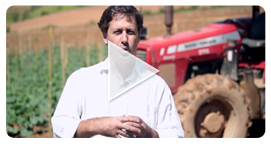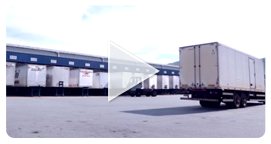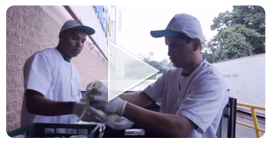
End-to-End Sustainability achieves a record number of participants in its 3rd edition
End-to-End Sustainability, already in its third edition, is one of the projects of the company that aims to add value to the supply chain, encouraging suppliers to analyze the life-cycles of leading items in each category, in order to identify ways of making them more eco-efficient – from the raw-material stage to post-consumption. Hence the name End-to-End. The supplier that participates in the initiative in turn receives a guarantee that his product will be purchased by the store chain. For Walmart, the program offers the chance of increasingly adding value within the supply chain. And the end-consumer has the opportunity to take home a product that is more sustainable and of better quality.
To learn more, click here.

Beef monitoring system for the Amazon region begins implementation in Brazil
This system uses satellite technology to the land of all the producers that provide the beef for the slaughterhouses that supply Walmart. With the data from each farm, such as latitude, longitude and perimeter, it is possible to visualize the property and detect any signs of de-forestation. The system also enables verification of whether the farms are complying with environmental and labor legislation, ensuring that the product does not come from indigenous land, or from suppliers that are on the Minister for Labor and Employment’s blacklist of companies that are suspected of using child labor or forced labor. By the end of 2013, 80% of Walmart suppliers had been registered with the system.
To learn more, click here.
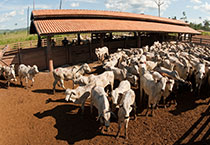
Picture: Haroldo Pablo Jr.
Project for the development of new beef herd production models launched in São Félix do Xingu (PA)
A partnership with Marfrig, the agricultural producers union of São Félix do Xingu and the NGO The Nature Conservancy (TNC), this project offers technical support to agricultural producers who wish to regularize their environmental situation and increase their productivity. This initiative has the support of the Moore foundation and municipal authority of São Félix do Xingu, and involves 20 pilot properties. In addition to revitalization of degraded areas, participating farmers learn to increase their productivity rates without impacting the environment, through improved pasture management. The proposal includes the publicizing of information on agricultural credit lines and alternative ways of generating income while leaving the forest intact, thus creating a new model for socially responsible production.
To learn more, click here.
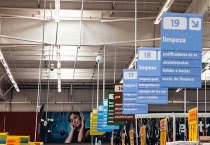
The company inaugurates its first store totally lit by LED, a pioneering initiative
in Brazil
The store in Indaiatuba, in the interior of the state of São Paulo, was the first in the Brazilian store chain to be 100% lit by LED, including the interiors of refrigerators and freezers in the sales area. LED lamps provide a 27% saving in electricity consumption for illumination purposes. It was necessary to develop custom-made light fittings and systems for the unit, which has a constructed area of 7900 square meters. By the end of 2014, a further 15 Walmart Brasil stores will undergo refurbishment and be equipped with LED lighting in their sales areas.
To learn more, click here.

Producers Club arrives in the the Midwest and benefits more than 150 small local farmers
Walmart Brasil's Clube dos Produtores (Producers Club) is an initiative aimed at small and medium-sized farming operations. By creating demand and guaranteeing the purchase of their products, Walmart encourages development on the part of the supplier and allows the possibility of direct dealings without intermediaries. The program also offers technical assistance and guidance for sustainable production. Created in 2002, the Club today includes 8700 families across 18 states, as well as a Federal District.
To learn more, click here.

Movement for Women 360o completes two years and is preparing to become an Oscip
The Corporate Movement for the Economic Development of Women (Movement for Women 360o) was created to encourage the inclusion of women in the supply chain and their professional development, helping to create female leadership positions in the corporate world. This initiative also seeks to encourage companies to increase their focus on the empowerment of women within their corporate social responsibility programs. An important step in the consolidation of this movement came in 2013 with the decision approved in Congress for the creation of a new type of legal entity, classified as an Organization of Civil Public Interest (Oscip).
To learn more, click here.







